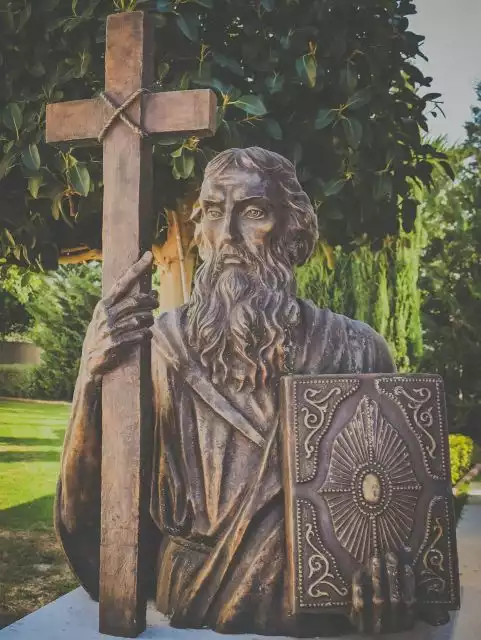‘The Order’ Review: Jude Law and Nicholas Hoult in an Explosive Crime Drama About the White-Supremacist Cult of the 1980s

“The Order,” written by Zach Baylin and directed by Justin Kurzel (whose “Nitram” chillingly dramatized the 1996 Port Arthur massacre in Tasmania), is at once a supremely intelligent docudrama about the rise of the white-supremacist movement and a riveting crime story.
The double-barreled disruption of the scene is this: Butler, though off by a couple of years, was exactly appropriate regarding exactly how the mainstreaming of his activity was going to function. Because sense, he represents a much more unsafe risk to America than Bob Matthews does. Matthews, by comparison, is a careless sociopath. His string of crimes, which as the motion picture shows us will finish in the murder of the Denver-based Jewish talk-radio host Alan Berg (played by Marc Maron), is absolutely nothing short of crazy. However what that indicates is that Butler, a seething American Nazi, is the voice of moderation here. That suffices to make your head spin and your belly a little queasy.
Matthews turns up in the churchgoers for among Butler’s preachings, and when he stands to make his very own plea for why the white-power change requires to take place now, before it’s far too late, Hoult makes us see exactly how righteously he thinks that; he brushes up the group up right into his fatality cult of ennobling risk. Matthews is in fact a rather scurrilous other. He and his other half, Debbie (Alison Oliver), have embraced children, but since he intends to carry on his line, he has actually additionally fertilized his mistress, Zillah (Odessa Young). He has actually done it with the very same privilege that, 10 years later, would certainly note the transgressions of David Koresh. However when Matthews solutions his look on an enemy, or on one of his followers who he assumes could be disloyal, his eyes beam with an awesome’s edge.
“The Order,” composed by Zach Baylin and directed by Justin Kurzel (whose “Nitram” chillingly dramatized the 1996 Port Arthur carnage in Tasmania), is at when a very intelligent docudrama concerning the surge of a fascinating crime and the white-supremacist movement tale. Kurzel works in a timeless method, firing the film (the cinematography is by Adam Arkapaw) with a vibrant feel for the elegance and desolation of the rural mountain landscapes of the Pacific Northwest, and for the moment-to-moment logistics of just how amateur lawbreakers move through space.
Jude Law, pouchy and downcast, with a fatigued mustache, plays Terry as a sincere representative who is additionally a damaged man (with his partner and two children separated, his work is all that’s holding him together), and this could well be one of the most searing, lived-in performance of Regulation’s profession. His Terry, that teams up with a local police officer (Tye Sheridan, looking as clean-cut as a Boy Scout), is a great police because he’s full of bitter, hard-won knowledge about how crooks run. He spent time in New york city chasing mobsters, and among the thoughts he shares– it belongs to the movie’s understanding– is that there’s a connection in between participants of the Mob, the KKK, and now the Order. The means he places it is: They all have a cause, however they’re really out for themselves.
There’s a scene in “The Order,” a captivating and explosive docudrama about the dawn of the modern American white-supremacist motion in the 1980s, that creeps you out in a really eye-opening method. The other male, Bob Matthews (Nicholas Hoult), is a previous follower of Butler’s that has split off from him, all since he thinks the Aryan Nations motion isn’t severe sufficient. As Butler explains, their activity can not obtain bogged down in criminality. The double-barreled disturbance of the scene is this: Butler, though off by a few years, was exactly right about just how the mainstreaming of his movement was going to function.”The Order,” composed by Zach Baylin and routed by Justin Kurzel (whose “Nitram” chillingly dramatized the 1996 Port Arthur bloodbath in Tasmania), is at once a supremely intelligent docudrama concerning the increase of a captivating criminal activity and the white-supremacist activity tale.
It’s never suspenseful because Kurzel is hyping the action. “The Order” is rigorously outlined in its authenticity. When the FBI, led nearly at random into this case (mainly due to the fact that Husk, the first one onto it, is reeling from a busted marriage and has actually been assigned to a one-man workplace in the nothing community of Coeur d’Alene), kicks off its examination, the Bureau’s tactics, initially, might strike us as a little bit drowsy or perhaps borderline inefficient. But that’s just due to the fact that the film is staying real to what the FBI is: a crew of all-too-human agents, not law-enforcement supermen, that in the days previously high modern technology needed to move one step at time.
The other guy, Bob Matthews (Nicholas Hoult), is a former follower of Butler’s that has divided off from him, all since he believes the Aryan Nations activity isn’t extreme sufficient. Matthews desires an armed uprising currently, and the insurrectionary band of ruffians he leads, called the Order (he named them after the white-supremacist revolutionaries in “The Turner Diaries”), are generally a tiny scruffy band of terrorists. In a very early scene, we see them eliminate one of their own in cool blood.
There’s a scene in “The Order,” a riveting and eruptive docudrama regarding the dawn of the contemporary American white-supremacist movement in the 1980s, that slips you out in a really mind-blowing way. 2 leaders of the activity are fulfilling on a separated country road in Idaho. One of them, Richard Butler (Victor Slezak), is the white nationalist that started the Aryan Nations, the neo-Nazi cult that has its substance nearby. He’s a racist extremist, yet he has the attitude of a courtly preacher, and he’s knowingly political concerning the development of his motion.
The FBI, led by an ugly expert agent named Terry Husk (Jude Legislation), has been smelling about, so Butler is meeting with Matthews to caution him that his fierce techniques are a big mistake. As Butler clarifies, their activity can’t get bogged down in criminality.
What “The Order” accomplishes that’s most haunting, and observant, is that it shows us just how white preeminence in America can be two points at when, 2 sides of the exact same coin: the legal and “nice” side, and the underlying terrible side. Bob Matthews, as the movie shows us at its climax, wound up in a literal snake pit for his ideas.
As disturbing as the discoveries of a neo-Nazi underground were after that, few could have guessed what form the mainstreaming of this motion would certainly take. The movie goes into detail about “The Turner Diaries,” the 1978 novel by neo-Nazi William Luther Pierce that became the bible of this motion– it was at as soon as a kids’s myth, a handbook of terrorism (with 6 phases of instruction on how to revolt versus the United state federal government), and a piece of hate mythology.
We see that in Nicholas Hoult’s powerfully convincing performance as Bob Matthews. Hoult looks just like the genuine Matthews, and if the technique in playing a guy packed with racist hate is not to caricature him– to show us the humankind of everyday evil– the star brings that off in an entirely deactivating way. He shows us that Matthews’ ideas are overall, that he’s living within them, yet that they’ve provided him a fervor that makes him a frightening charming thug ringleader.
1 Aryan Nations movement2 Bob Matthews
« Musical Acts Who’ve Called Out 2024 Trump Campaign for Illegal Use of Their SongsZendaya, Mike Faist, and Josh O’Connor Share Their Favorite Challengers Scenes »
